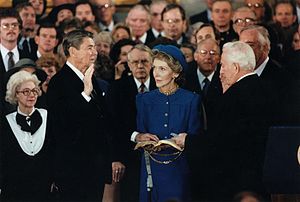The much-admired Supreme Court Justice Hugo Black may be rolling in his grave at the prospect of a merger between 21st Century Fox and Time Warner Inc., which would reduce control of the major Hollywood studios to five owners, from six, and major television producers to four, from five.
“The widest possible dissemination of information from diverse and antagonistic sources is essential to the welfare of the public,” he wrote in the majority opinion that decided a 1945 antitrust case involving major newspaper publishers and The Associated Press. “The First Amendment affords not the slightest support for the contention that a combination to restrain trade in news and views has any constitutional immunity.”
Fox and Time Warner may no longer publish old-media newspapers or magazines, but they certainly disseminate information and opinions that may be even more vital to the “welfare of the public” today than the newspapers of Justice Black’s era. HBO alone, one of Time Warner’s cable channels, produces “Real Time With Bill Maher,” “Last Week Tonight With John Oliver” and acclaimed documentaries like “The Case Against 8,” about the struggle for marriage equality, and the “Paradise Lost” series, which examined the murder convictions of the group of white teenagers known as the West Memphis Three.
Fox and Time Warner disseminate a wide range of information and opinions. HBO, one of Time Warner’s cable channels, produces “Real Time With Bill Maher,” “Last Week Tonight with John Oliver” as well as acclaimed documentaries. Credit Janet Van Ham/HBO, via Associated Press
How many of those would be produced under the ownership of a Rupert Murdoch, or for that matter, any other media mogul who controlled close to 40 percent of all major film production and nearly 20 percent of all television?
“I don’t see a bright distinction between news and entertainment,” said Christopher L. Sagers, an antitrust professor at Cleveland-Marshall College of Law. “One person shouldn’t own all the cultural creativity resources. If one person can limit content, that’s a huge loss to society.”
Advocates for consolidation in media, who include not just Mr. Murdoch, who controls 21st Century Fox, and their allies, but also other big media, cable and telecommunications companies, tend to brush off antitrust concerns when it comes to content creation. (Even Time Warner has been cautious about raising any antitrust defenses, presumably because, should it thwart Mr. Murdoch this time, it may want to acquire its rivals at some point in the future.)
After all, the rise of Netflix and the popularity of YouTube demonstrate that anyone can make successful original programming in the freewheeling digital era. And even as television producers have consolidated, critics have hailed a new “golden age” of television.
But this ignores the fact that in 1983, 50 companies owned 90 percent of the media consumed by Americans. By 2012, just six companies — including Fox (then part of News Corporation) and Time Warner — controlled that 90 percent, according to testimony before the House Judiciary Committee examining Comcast’s acquisition of NBCUniversal.
http://www.nytimes.com/2014/07/26/business/a-21st-century-fox-time-warner-merger-would-narrow-already-dwindling-competition.html?_r=0



